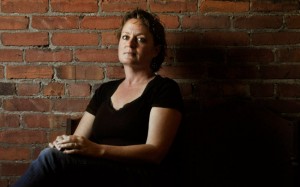By James Milstid
E-Readers, the Internet, and digital audio books have changed the way many of us are reading.
Sure, real books have a certain warm and cozy je ne sais quoi and appeal that I’ll never deny. But electronic books have won me over for convenience and ease. I’m sure that my being a techy has something to do with it too. But having read at least thirty books on my nookcolor (and several more on my iPhone before I had a nook) puts me way beyond the exploratory mode. My e-Reader is my preferred media for books.
I’ve been interested for some time how digital media is affecting publishers, bookstores, libraries, and the like. So it was with some interest that I read this article in the New York Times. It certainly is a sign of the times…
Amazon Signs Up Authors, Writing Publishers Out of Deal
By DAVID STREITFELD
Published: October 16, 2011SEATTLE — Amazon.com has taught readers that they do not need bookstores. Now it is encouraging writers to cast aside their publishers.
Laurel Saville’s memoir about her mother was self-published at first. It is scheduled to be published by Amazon next month.
Amazon will publish 122 books this fall in an array of genres, in both physical and e-book form. It is a striking acceleration of the retailer’s fledging publishing program that will place Amazon squarely in competition with the New York houses that are also its most prominent suppliers.It has set up a flagship line run by a publishing veteran, Laurence Kirshbaum, to bring out brand-name fiction and nonfiction. It signed its first deal with the self-help author Tim Ferriss. Last week it announced a memoir by the actress and director Penny Marshall, for which it paid $800,000, a person with direct knowledge of the deal said.
Publishers say Amazon is aggressively wooing some of their top authors. And the company is gnawing away at the services that publishers, critics and agents used to provide.
Several large publishers declined to speak on the record about Amazon’s efforts. “Publishers are terrified and don’t know what to do,” said Dennis Loy Johnson of Melville House, who is known for speaking his mind.
“Everyone’s afraid of Amazon,” said Richard Curtis, a longtime agent who is also an e-book publisher. “If you’re a bookstore, Amazon has been in competition with you for some time. If you’re a publisher, one day you wake up and Amazon is competing with you too. And if you’re an agent, Amazon may be stealing your lunch because it is offering authors the opportunity to publish directly and cut you out.
“It’s an old strategy: divide and conquer,” Mr. Curtis said.
Amazon executives, interviewed at the company’s headquarters here, declined to say how many editors the company employed, or how many books it had under contract. But they played down Amazon’s power and said publishers were in love with their own demise.
“It’s always the end of the world,” said Russell Grandinetti, one of Amazon’s top executives. “You could set your watch on it arriving.”
He pointed out, though, that the landscape was in some ways changing for the first time since Gutenberg invented the modern book nearly 600 years ago. “The only really necessary people in the publishing process now are the writer and reader,” he said. “Everyone who stands between those two has both risk and opportunity.”
Amazon has started giving all authors, whether it publishes them or not, direct access to highly coveted Nielsen BookScan sales data, which records how many physical books they are selling in individual markets like Milwaukee or New Orleans. It is introducing the sort of one-on-one communication between authors and their fans that used to happen only on book tours. It made an obscure German historical novel a runaway best seller without a single professional reviewer weighing in.
Publishers caught a glimpse of a future they fear has no role for them late last month when Amazon introduced the Kindle Fire, a tablet for books and other media sold by Amazon. Jeffrey P. Bezos, the company’s chief executive, referred several times to Kindle as “an end-to-end service,” conjuring up a world in which Amazon develops, promotes and delivers the product.
For a sense of how rattled publishers are by Amazon’s foray into their business, consider the case of Kiana Davenport, a Hawaiian writer whose career abruptly derailed last month.
In 2010 Ms. Davenport signed with Riverhead Books, a division of Penguin, for “The Chinese Soldier’s Daughter,” a Civil War love story. She received a $20,000 advance for the book, which was supposed to come out next summer.
If writers have one message drilled into them these days, it is this: hustle yourself. So Ms. Davenport took off the shelf several award-winning short stories she had written 20 years ago and packaged them in an e-book, “Cannibal Nights,” available on Amazon.
When Penguin found out, it went “ballistic,” Ms. Davenport wrote on her blog, accusing her of breaking her contractual promise to avoid competing with it. It wanted “Cannibal Nights” removed from sale and all mentions of it deleted from the Internet.
Ms. Davenport refused, so Penguin canceled her novel and has said it will pursue legal action if she does not return the advance.
“They’re trying to set an example: If you self-publish and distribute with Amazon, you do so at your own risk,” said Jan Constantine, a lawyer with the Authors Guild who has represented Ms. Davenport.
The writer knows her crime: “Sleeping with the enemy.” Penguin declined to comment.
If some writers are suffering collateral damage, others are benefiting from this new setup. Laurel Saville was locked out by the old system, when New York publishers were the gatekeepers. “I got lots and lots of praise but no takers,” said Ms. Saville, 48, a business writer who lives in Little Falls, N.Y.
Two years ago she decided to pay for the publication of her memoir about her mother’s descent from California beauty queen to street person to murder victim. She spent about $2,200, which yielded sales of 600 copies. Not horrible but far from earth-shaking.
Last fall, Ms. Saville paid $100 to be included in a Publishers Weekly list of self-published writers. The magazine ended up reviewing her memoir, giving it a mixed notice that nevertheless caught the attention of Amazon editors. They sent Ms. Saville an e-mail offering to republish the book. It got an editorial once-over, a new cover and a new title: “Unraveling Anne.” It will be published next month.
Ms. Saville did not get any money upfront, as she would have if a traditional publisher had picked up her memoir. In essence, Amazon has become her partner.
“I assume they want to make a lot of money off the book, which is encouraging to me,” said Ms. Saville, who negotiated her deal without an agent.
Her contract has a clause that forbids her from discussing the details, which is not traditional in publishing. The publicity plans for the book are also secret.
Can Amazon secretly create its own best sellers? “The Hangman’s Daughter” was an e-book hit. Amazon bought the rights to the historical novel by a first-time writer, Oliver Pötzsch, and had it translated from German. It has now sold 250,000 digital copies.
“The great and fascinating thing about Amazon’s publishing program is that there can be these grass-roots phenomena,” said Bruce Nichols of Houghton Mifflin Harcourt, which republished the novel this summer.
Ms. Saville no longer even contemplates a career with a traditional publisher. “They had their shot,” she said. She is now writing a novel. “My hope is Amazon will think it’s wonderful and we’ll go happily off into the publishing sunset,” she said.
This article has been revised to reflect the following correction:
Correction: October 19, 2011
An article on Monday about Amazon.com’s foray into publishing misstated the actions of the publisher Penguin after Kiana Davenport, an author under contract to write a novel for its Riverhead Books imprint, published a collection of short stories as an e-book available on Amazon. Penguin canceled Ms. Davenport’s novel and said it would sue if she did not return the advance for the book; it has not filed a lawsuit against her.


